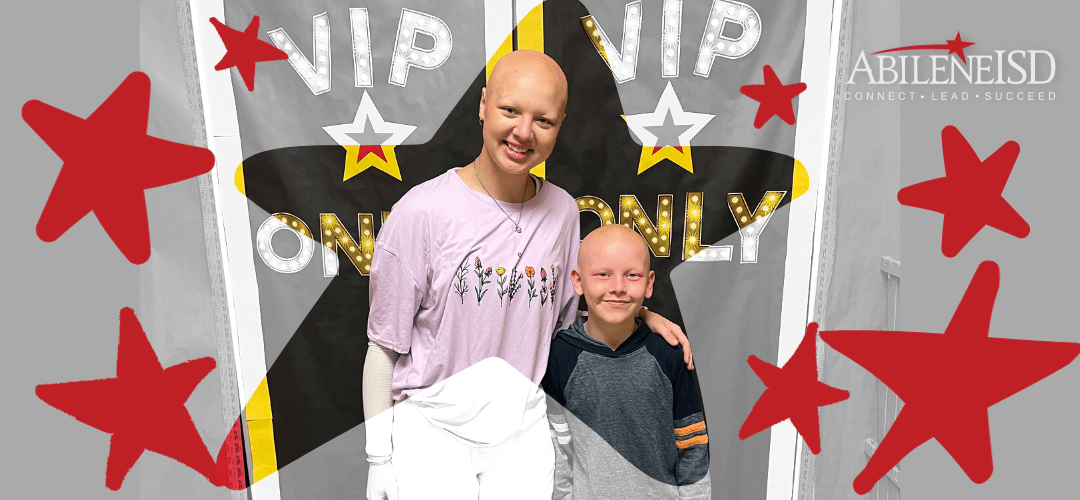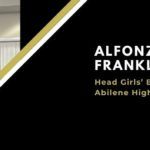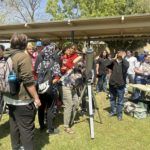Abi Pena-Perez remembers the day she noticed her hair was falling out. She remembers the first time anyone said anything to her about it. She remembers what it was like when people she thought were her friends laughed at her bald head.
She also remembers the people who have expressed their condolences for her, thinking she had cancer. And she remembers the parent who talked to her about losing her child to cancer and that she was praying for Abi in her battle against the dreaded disease.
None of those memories are easy to shake for the Cooper High School senior.
None of them knew she wasn’t dealing with cancer, but another disease that her father had dealt with his entire life. Pena-Perez – like her father, Rafael – has Alopecia, an incurable disease that causes hair loss most often on the scalp. With the disease, the immune system mistakenly attacks hair follicles, causing inflammation, which leads to the hair falling out.
Pena-Perez was 10 years old when her parents took her out for ice cream and broke the news to her that the reason her hair was thinning and falling out was because she had Alopecia. Pena-Perez said she was used to seeing her dad, so she wasn’t scared. But she really had no idea what was to come.
“I didn’t know I was going to lose friends over it,” she said. “And I didn’t know I was going to be brutally bullied over it.”
In fact, during her freshman year at another school district, she contemplated taking her own life.
None of this has been easy for the 18-year-old senior who excelled on the volleyball court for the Lady Coogs the last three seasons, is part of the Student Council, and is called by Cooper Student Council sponsor Jimmy Pogue, “joyful, encouraging, and energetic.” Her transfer into the Abilene ISD and Cooper has made a huge difference in her outlook, and she’s gotten past the thoughts of self-harm that at times seemed to be the only way out of the pattern of bullying she endured for several years.
“I’ve gotten past a lot of those negative thoughts, but when I moved to Cooper I still struggled,” Pena-Perez said. “I might have known three people here, and I was scared and lost, so I had my friends walk me to my classes because I didn’t know anyone. I didn’t say much to anyone when I first started, but after a while, I knew had to be more myself, and I had to put myself out there.”
Pena-Perez wasn’t in Student Council her sophomore year at Cooper, but her English class was right next to Pogue’s class, which also doubled as the Student Council meeting room. Pena-Perez would wander into the classroom and talk to other students before the bell rang and began to make friends. She joined Student Council before her junior year now is in her second year in the group.
In late September of this year, Pogue went to Pena-Perez and told her about a boy at Bassetti Elementary – Keegan Thurman – who had also been diagnosed with Alopecia and was struggling with accepting a new life without hair. He was also being bullied. Pena-Perez went to the office and called the principal at Bassetti, Cecelia Zertuche, and set up a time to visit with the Bassetti fifth grader. She told Zertuche she hoped she could pass along some wisdom she has picked up in the eight years since her hair began to fall out.
Pena-Perez and Thurman meet each Thursday when she makes her weekly journey to the elementary school, located on the far west side of town. When they first began talking, Pena-Perez said Thurman didn’t really open up to her. But she had a message for him.
“The first time I met with him I brought some coloring books and Legos because I knew that what we were going to talk about was going to be hard. It was going to be a difficult conversation, and I didn’t know how it was going to go,” she said. “I asked him about some of the things he’d heard in the hallways, how he felt about himself, and what he was dealing with in his head. Those are hard things to talk about, and he avoided talking about them that day.”
Soon, though, Thurman, who at age six noticed his hair falling into his hands when he scrubbed his scalp in the shower, began to open up to Pena-Perez.
“I was crying, and my mom came into the bathroom and saw my hair in my hands, and she took me to the doctor,” Thurman said. “The doctor said the only two ways my hair would grow back would be to get 60 shots in my scalp (to re-generate the hair follicles) or by using a cream.”
Thurman’s hair, like Pena-Perez’s, did grow back but fell out again. And, like Pena-Perez, he hasn’t been immune from being bullied.
“One day on the bus, a girl was singing, ‘Ugly Keegan, bald-headed boy,’ “ he said. “But I told the bus rider, and she stopped. Those things don’t bother me too much anymore. As soon I was able to tell the bus rider what happened, the bad feelings I was having went away.
“But there are times when I’m at my house when I know I’m the one that’s different from everybody else in the family, and I feel like I don’t belong,” he said. “But my mom and stepdad will talk to me and tell me that the Alopecia doesn’t matter, and that helps.”
Once again, the same things that Pena-Perez has faced throughout her journey.
“I’ve told Keegan that people are going to say things about him because he’s an easy target … like the thing with the girl on the bus,” Pena-Perez. “They’ll go after him because he’s an easy target. He’ll be mocked and physically bullied. It’s going to be hard, but I want him to know he’s not alone in this. Other people have gone through this and made it through. It’s going to hurt and he’s going to feel lost, but I’ve also told him he’s got to fight through it.”
To make it easier, Pena-Perez and the rest of the Cooper Student Council are planning on visiting the Bassetti campus to do an anti-bullying campaign, not focused just on Alopecia, but on bullying in general. Pena-Perez said she wants to take that anti-bullying message all over the district because, as she says, “You don’t know who’s hurting and who’s being bullied for something out of their control.”
That’s not just a message she wants to spread throughout the Abilene ISD; it’s one she wants to spread worldwide when she graduates from college. She’s planning on majoring in business and minoring in public relations so she can run a non-profit to raise awareness about Alopecia.
“I want to be a proponent for making it normal,” Pena-Perez said. “I already do Zoom calls about Alopecia and do motivational speaking for young children. If my hair grows back tomorrow and I’m never bald again, it will still have been the biggest part of my life. I’ve cried the most because of Alopecia. I’ve experienced more pain because of it, and it’s the hardest thing I’ve had to deal with. It’s forever a part of my life.
“I want people to know what Alopecia is, and I want to make a difference in that community,” she said. “I want to educate others on what it is and let everyone know that those of us with Alopecia aren’t different on the inside from anyone else; we just look different on the outside. Bullying people because of Alopecia is a low blow because it’s something we can’t change. It’s part of us and will be for the rest of our lives.”













